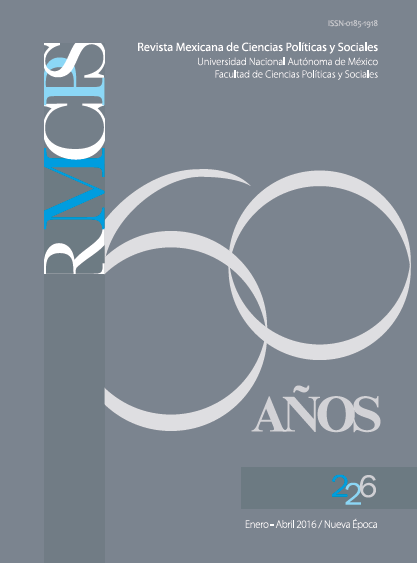Ways out of Violence. An Outstanding Work for the Human and Social Sciences
Main Article Content
Abstract
Downloads
Article Details
Citas en Dimensions Service
References
Centro Nacional de Memoria Histórica, (2013) ¡Basta ya! Colombia: memorias de guerra y dignidad. Bogotá, Pro-Off Set. Disponible en: <http://www.centrodememoriahistorica.gov.co/descargas/informes2013/bastaYa/resumen-ejecutivo-basta-ya.pdf> [Consultado el 15 de junio de 2015].
El País, (1989) “Furet: ‘La Revolución Francesa ha terminado’” en El País, 26 de febrero. Disponible en: <http://elpais.com/diario/1989/02/26/cultura/604450803_850215.html> [Consultado el 1 de julio de 2015].
Elias, Norbert, (1973) La Civilisation des mœurs. París, Calmann-Levy, coll. “Liberté de l'esprit”.
Elias, Norbert, (1975) La Dynamique de l’Occident. París, Calmann-Lévy.
Foucault, Michel, (1975) Surveiller et punir. París, Gallimard.
Freud, Sigmund, (1984) “Introduction à La Psychoanalyse des névroses de guerre” en Résultats, idées, problèmes. París, PUF.
Hobbes, Thomas, (1651) Léviathan ou Traité de la matière, de la forme et du pouvoir d'une république ecclésiastique et civile. 1a edición. Disponible en: <http://classiques.uqac.ca/classiques/hobbes_thomas/leviathan/leviathan.html> [Consultado el 15 de junio de 2015].
Le Monde des Débats, (1999) “Le siècle et le pardon” en Le Monde des Débats. Disponible en: <http://hydra.humanities.uci.edu/derrida/siecle.html> [Consultado el 15 de junio de 2015].
Renan, Ernest, (1881) Qu’est-ce qu’une nation. Conferencia en el Colegio de Francia.
Sen, Amartya, (2006) La démocratie des autres. París, Payot.
Sen, Amartya, (2010) L’idée de justice. París, Flammarion.
Touraine, Alain, (1978) La Voix et le regard. París, Seuil.
Weber, Max, (1919) Le savant et le politique. París, 10/18.
Wieviorka, Michel, (1989) Sociétés et terrorisme. París, Fayard.
Wieviorka, Michel, (2012) La Violence. París, Hachette-Pluriel.
Wieviorka, Michel, (2015) Retour au sens. Pour en finir avec le déclinisme. París, Robert Laffont.

La Revista Mexicana de Ciencias Políticas y Sociales publicada por la Universidad Nacional Autónoma de México se distribuye bajo una Licencia Creative Commons Atribución-NoComercial-SinDerivar 4.0 Internacional.
Basada en una obra en http://www.revistas.unam.mx/index.php/rmcpys/
La RMCPyS autoriza a sus colaboradores que suban una copia de sus trabajos publicados en sus webs personales o en cualquier repositorio de acceso abierto, siempre y cuando se mencione específicamente a la Revista Mexicana de Ciencias Políticas y Sociales como fuente original de procedencia, citando el año y número del ejemplar respectivo y añadiendo el enlace a la página web donde este órgano editorial puede ser consultado in toto, de manera abierta y gratuita en: <www.revistas.unam.mx/index.php/rmcpys>.
Las y los lectores tienen libertad para:
Compartir, copiar y redistribuir el material en cualquier medio o formato.
El licenciante no puede revocar estas libertades en tanto usted siga los términos de la licencia.
De acuerdo con los siguientes términos:
- Atribución: la/el lector/a debe reconocer el crédito de una obra de manera adecuada, proporcionar un enlace a la licencia, e indicar si se han realizado cambios. Puede hacerlo en cualquier forma razonable, pero no de forma tal que sugiera que tiene el apoyo del licenciante o lo recibe por el uso que hace.
- No comercial: la/el lector/a no puede hacer uso del material con fines comerciales.
- Si se mezcla, transforma o se desarrolla a partir de la obra licenciada, no se permite la distribución del material modificado.
Cargos por gestión de artículos
La Revista Mexicana de Ciencias Políticas y Sociales NO cobra tarifas por recibir, procesar o publicar los artículos (Article Processing Charge [APC]) enviados por los autores.

